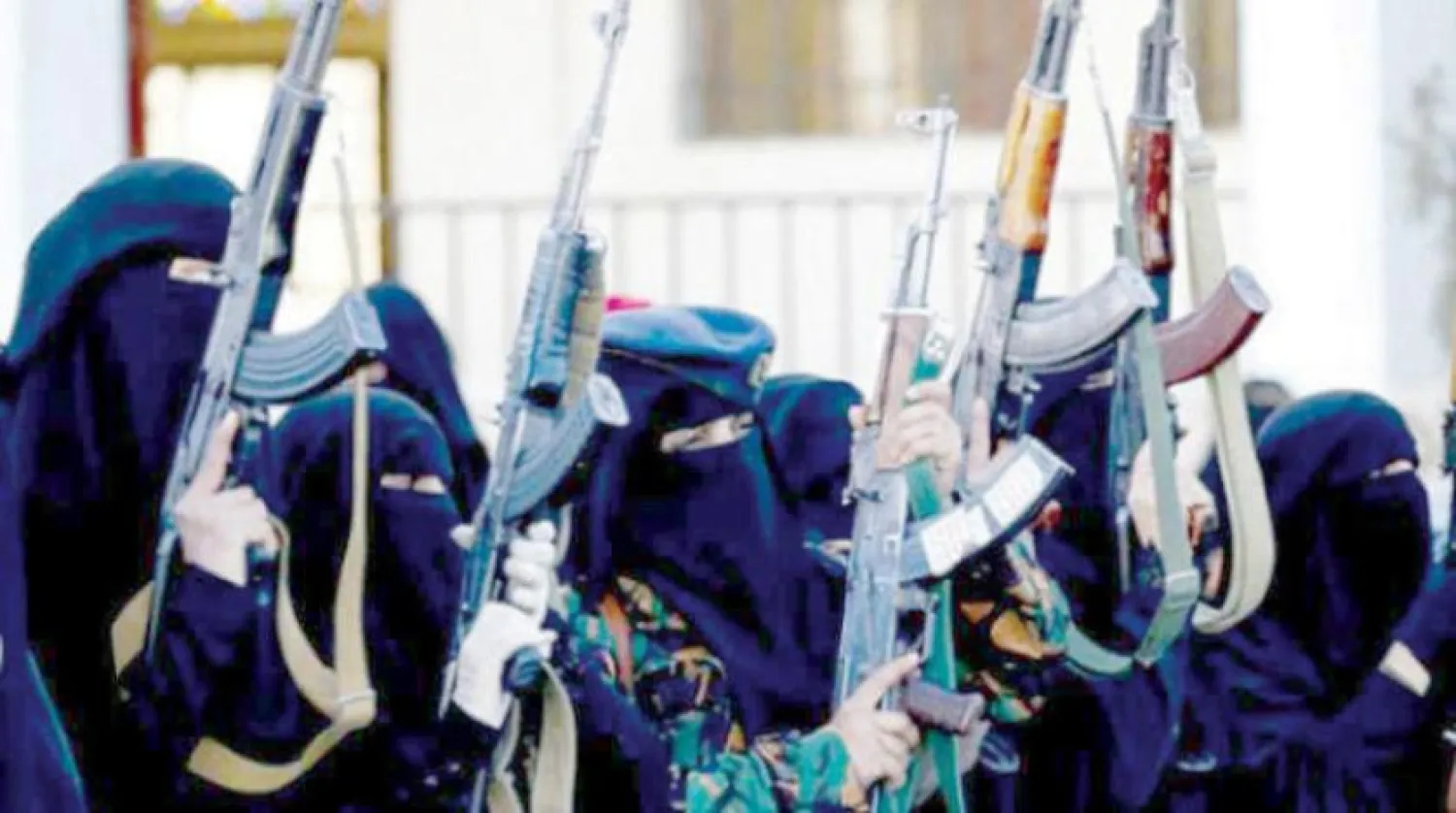Houthi militias are banning women from traveling inside and outside Yemen without a mahram, or a male companion, accompanying them.
Karima, a woman in her seventies, was stopped at a Houthi militia checkpoint in Sanaa and prevented from traveling because she did not have a mahram.
Her son Fahmy told Asharq Al-Awsat that the Houthi checkpoint in the Qaa al-Qaydi area at the southern entrance to Sanaa returned his mother last week. They dropped her off the bus to Aden and four other women and were asked to return because a mahram did not accompany them. He explained that his mother had to wait several days until she found a well-known family traveling to Aden and agreed to take her with them.
Ahmed Yahya explained how he and his colleagues spent an hour at the same checkpoint on their way back from Dhamar to the capital. He said that when they inquired about the delay, they were informed that the checkpoint personnel was busy checking public transport buses and taxis, searching for women without male companions.
- Insulting a university professor
A female activist, Lamia al-Eryani, reported that a 50-year-old widow, who is also a biochemistry professor, was invited to attend an international conference but was returned to Sanaa on her way to Aden, claiming a mahram did not accompany her.
Eryani stated that the professor's husband died, her son emigrated, and her only brother could not leave his work, and they do not cover the financial costs of their travels. She said that the professor was depressed and resided in her home.
According to Yemeni activists, the Houthi authority directed its members at Sanaa airport to prevent any woman from traveling unless accompanied by a male relative. They canceled previous circulars that had been in force for more than a year, which stipulated that women would be allowed to travel if they brought prescriptive consent from their guardians.
Yemeni writers and intellectuals announced their solidarity with women, calling for the coup authority to stop obstructing women's travel rights.
- New security formation
The restrictions will affect the relief work and make it difficult for female workers to reach displaced people and those in need of assistance.
A dignitary in Amran revealed that the militias had created a special security formation for marriage, tasked with setting rules for wedding parties and monitoring compliance with the instructions.
Abdul-Malik al-Maakhazi said that his daughter's wedding was stopped after a women's police vehicle stormed the hall, stopped filming, and confiscated the camera.
He was summoned to the Security Department, where they inspected the camera's content. When they found nothing but the bride's pictures, they told him that they had committed an offense by photographing the wedding.
According to Maakhazi, the security department then arrested the wedding hall owner because he did not obtain prior permission from the new security formation called the Marriage Committee. He was later released after several mediators intervened.
The Houthi militia also raided women's clothing stores, confiscating several items and claiming they violated the leader's instructions.
They also raided English language learning centers and cafes, arguing there was mixing and mingling between the two genders. They also separated male and female students in classes.









